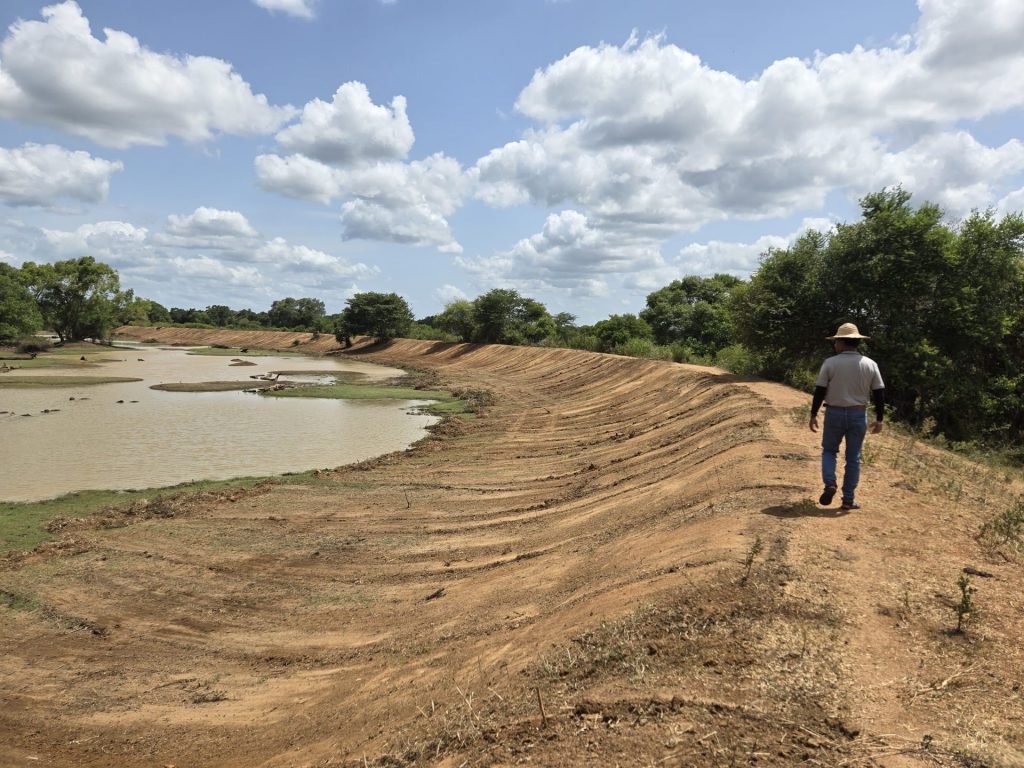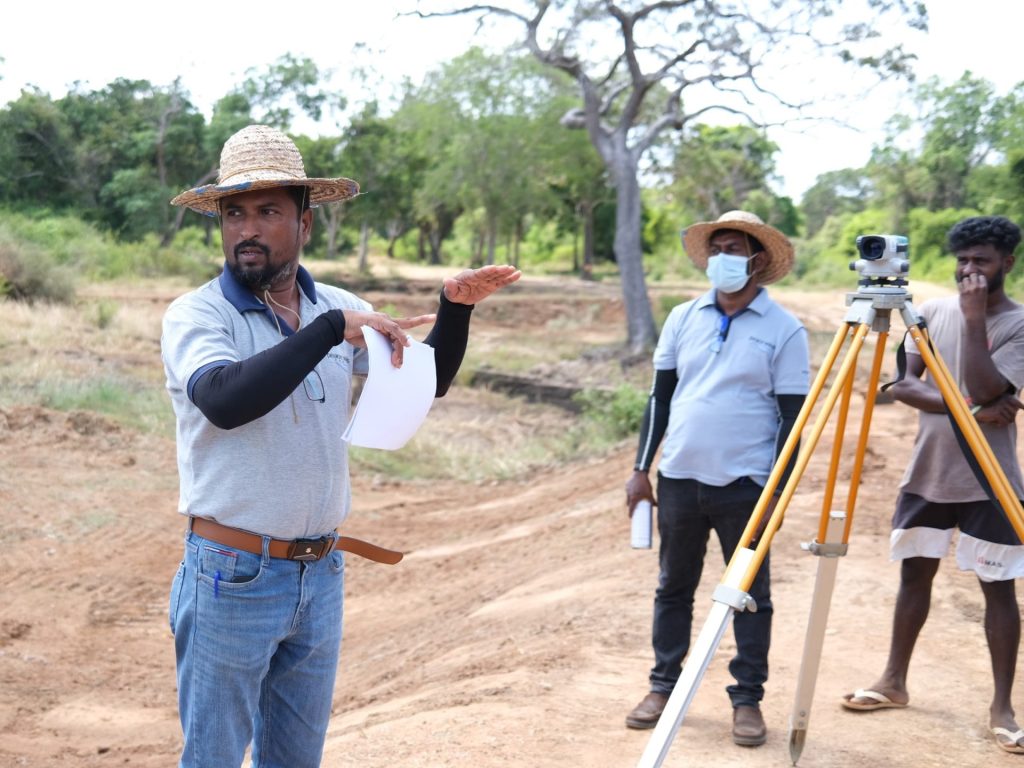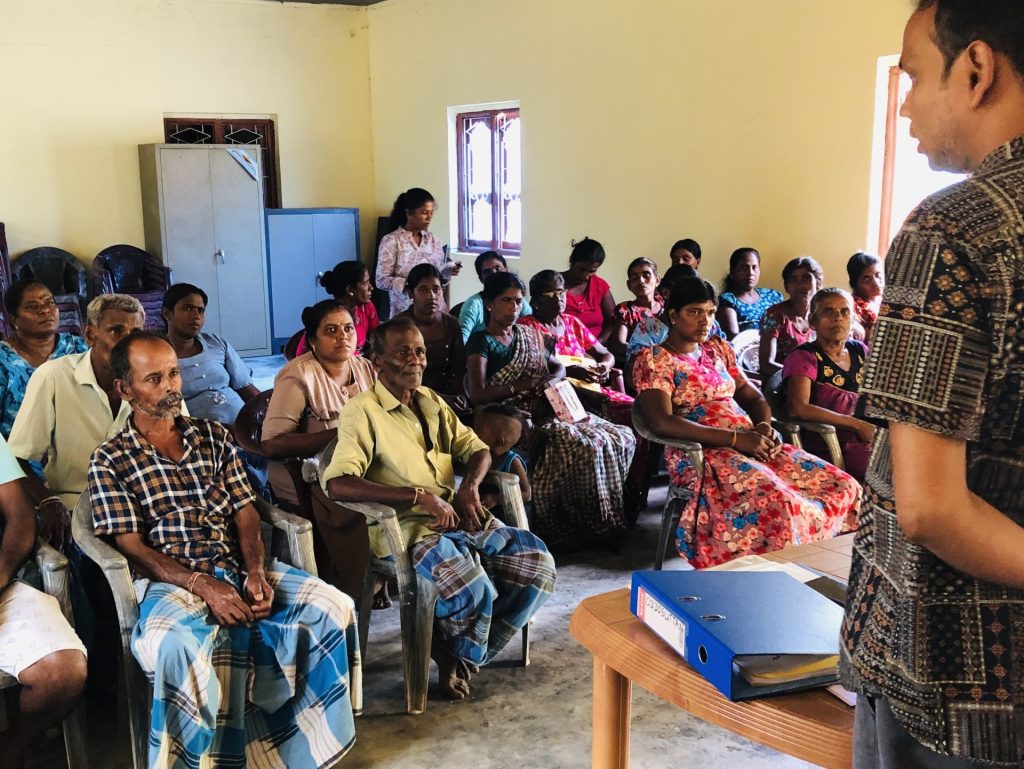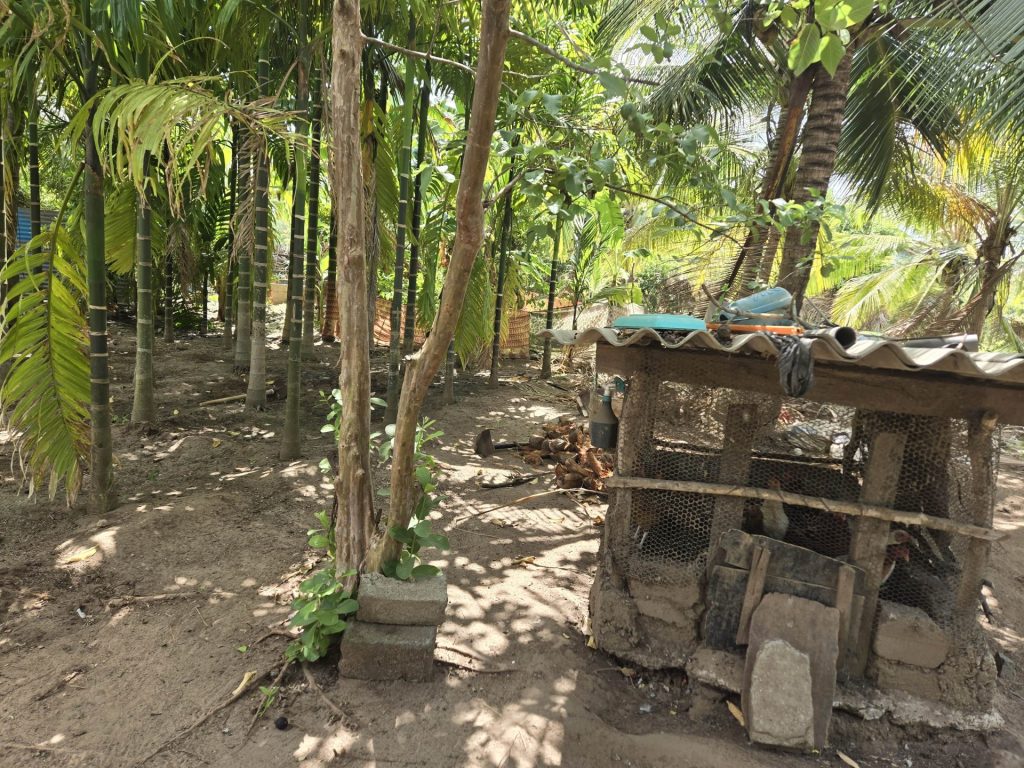Increasing opportunities for farmers and day laborers in Sri Lanka

In April 2024, Peace Winds began a new program in Mullaitivu in Sri Lanka’s Northern Province. This region was the scene of major fighting during the 26-year-long civil war, which ended in 2009, and it has taken a long time for the area to recover. Mullaitivu is still one of the poorest districts in Sri Lanka. Most families have at least one family member who was killed or injured in the war, and one woman told us that she and her family moved more than ten times to escape the fires when the war was ending. Landmine removal is still ongoing in parts of the wooded areas adjacent to the villages.
There are no large cities in this area, and job opportunities are limited. Many residents make a living by farming–which consists mainly of rice cultivation–or, if they do not own farmland, by working as day laborers for construction or farm work. The inflation caused by the financial crisis in 2022 also dealt a major blow to families who were struggling to get by.
To relieve some of this hardship and increase livelihood opportunities, Peace Winds’ program involves repairing and replacing dilapidated water reservoirs and wells with the aim of increasing agricultural production. For families who do not own farmland, Peace Winds is distributing materials for poultry farming and home gardening and providing training on how to make a living through these methods. Priority for this portion of the program is given to female-headed households.
Agricultural irrigation systems were developed for Sri Lanka’s arid climate to ensure that not a drop of water during the rainy season is wasted by going into the sea. Many of the dikes, sluices, drainage channels, and other components of the irrigation systems have deteriorated over the years, and many are not large enough to accommodate the increasing amount of farmland. Peace Winds is repairing and replacing these systems to reduce the risk of dike collapse and increase the amount of water that can be stored and used for farming.
Additionally, members of local farmers’ associations are leading the repair work. This allows villagers to feel personally invested in the project and encourages them to better maintain the irrigation systems in the long run. Peace Winds has repaired more than 60 reservoirs using this method in the eastern district of Trincomalee, and the lessons learned from those programs have helped our teams develop an effective plan in Mullaitivu.

Individuals who do not own farmland often work as day laborers, but this work is unstable. Most day laborers work only two or three days per week and generally earn about 1,500 to 2,500 rupees per day, about US$5 to US$8.50. It is even more difficult for female-headed households with multiple children to support themselves on this.
Since the financial crisis in 2022, inflation has risen and food prices have doubled, but income has remained largely the same. Many people survive by reducing the content and frequency of their meals or taking out loans. Peace Winds’ support for small-scale poultry farming and home gardening allows these households to produce eggs and vegetables at home, increasing food security. Staff are visiting Mullaitivu’s villages where they meet with families and collect information from local offices in order to assess each household’s living conditions. Next, they begin the training program and distribute chicks, seeds, seedlings, and materials for chicken coops and gardens.
This project is made possible thanks to the financial support of the Japanese Ministry of Foreign Affairs. Peace Winds is also carrying out another project supporting small-scale farmers as they implement circular agriculture methods in Trincomalee. Both initiatives are also aided considerably by generous donations from Peace Winds’ supporters.

